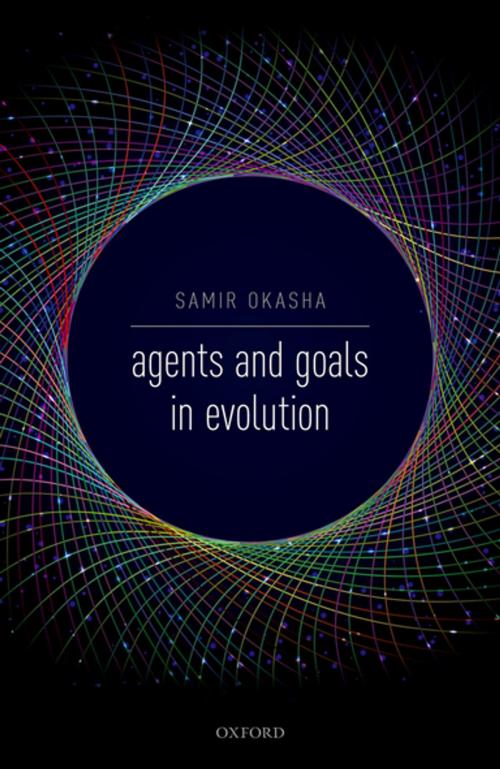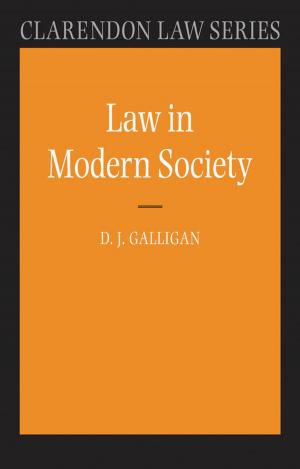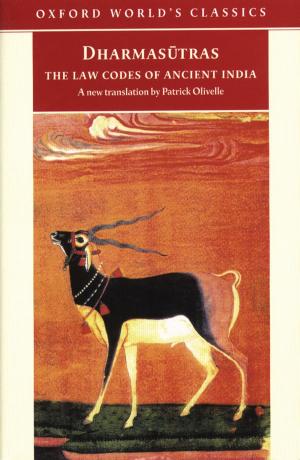Agents and Goals in Evolution
Nonfiction, Science & Nature, Science, Other Sciences, Philosophy & Social Aspects, Religion & Spirituality, Philosophy| Author: | Samir Okasha | ISBN: | 9780192546739 |
| Publisher: | OUP Oxford | Publication: | June 13, 2018 |
| Imprint: | OUP Oxford | Language: | English |
| Author: | Samir Okasha |
| ISBN: | 9780192546739 |
| Publisher: | OUP Oxford |
| Publication: | June 13, 2018 |
| Imprint: | OUP Oxford |
| Language: | English |
Samir Okasha offers a philosophical perspective on evolutionary biology in Agents and Goals in Evolution. His focus is on "agential thinking", which is a mode of thought commonly employed in evolutionary biology. The paradigm case of agential thinking involves treating an evolved organism as if it were an agent pursuing a goal, such as survival or reproduction, and treating its phenotypic traits as strategies for achieving that goal, or furthering its biological interests. Agential thinking involves deliberately transposing a set of concepts - goals, interests, strategies - from rational human agents to the biological world more generally. Okasha's enquiry begins by asking whether this is justified. Is agential thinking mere anthropomorphism, or does it play a genuine intellectual role in the science? This central question leads Okasha to a series of further questions. How do we identify the "goal" that evolved organisms will behave as if they are trying to achieve? Can agential thinking ever be applied to groups or genes, rather than to individual organisms? And how does agential thinking relate to the controversies over fitness-maximization in evolutionary biology? In the final third of the book, Okasha examines the relation between the adaptive and the rational. If organisms can validly be treated as agent-like, for the purposes of evolutionary analysis, should we expect that their evolved behaviour will correspond to the behaviour of rational agents as codified in the theory of rational choice? If so, does this mean that the fitness-maximizing paradigm of the evolutionary biologist can be mapped directly to the utility-maximizing paradigm of the rational choice theorist? Okasha explores these questions using an inter-disciplinary methodology that draws on philosophy of science, evolutionary biology and economics.
Samir Okasha offers a philosophical perspective on evolutionary biology in Agents and Goals in Evolution. His focus is on "agential thinking", which is a mode of thought commonly employed in evolutionary biology. The paradigm case of agential thinking involves treating an evolved organism as if it were an agent pursuing a goal, such as survival or reproduction, and treating its phenotypic traits as strategies for achieving that goal, or furthering its biological interests. Agential thinking involves deliberately transposing a set of concepts - goals, interests, strategies - from rational human agents to the biological world more generally. Okasha's enquiry begins by asking whether this is justified. Is agential thinking mere anthropomorphism, or does it play a genuine intellectual role in the science? This central question leads Okasha to a series of further questions. How do we identify the "goal" that evolved organisms will behave as if they are trying to achieve? Can agential thinking ever be applied to groups or genes, rather than to individual organisms? And how does agential thinking relate to the controversies over fitness-maximization in evolutionary biology? In the final third of the book, Okasha examines the relation between the adaptive and the rational. If organisms can validly be treated as agent-like, for the purposes of evolutionary analysis, should we expect that their evolved behaviour will correspond to the behaviour of rational agents as codified in the theory of rational choice? If so, does this mean that the fitness-maximizing paradigm of the evolutionary biologist can be mapped directly to the utility-maximizing paradigm of the rational choice theorist? Okasha explores these questions using an inter-disciplinary methodology that draws on philosophy of science, evolutionary biology and economics.















